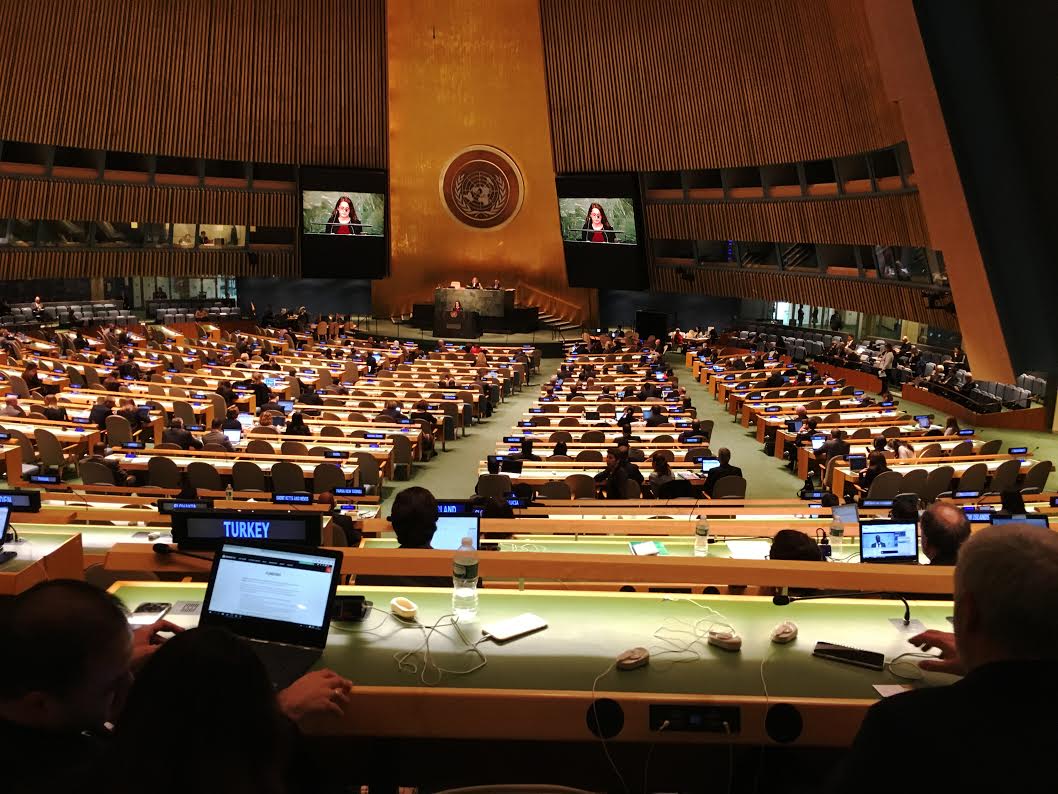Deniz Duru Aydin, policy fellow at Access Now, chose to ask our global community for their thoughts to help develop her speech representing us in the high-level meeting for the WSIS+10 process at the United Nations. It takes place between 3:00-5:00 p.m. EST today. You can tune in live here.
Following is the full text of her speech:
Honorable Co-facilitators, Delegates, good afternoon.
I am speaking here today as a 23-year-old internet user from Istanbul, Turkey, and I have been told that I am the youngest person to address this room in the past two days.
My participation in the information society started as a 12-year-old playing the game Snake on my father’s mobile phone. Now I use the free and open internet on a daily basis to access information, talk with my family and friends back home, and express my ideas. And I am proud to say that I have a tendency to encrypt.
I represent Access Now, an international organization that defends and extends the digital rights of users at risk around the world. When I was invited to speak here, I asked Access Now’s global community of internet users to identify the biggest threats and opportunities for the internet over the next ten years. More than a thousand people from over all over the world have helped me to write this speech. I am very proud to say this speech is open-sourced.
Here is what we have to say.
Human rights must remain at the center of the development agenda for the internet.
As we take on the important responsibility of bridging digital divides, we need to recognize that connectivity is not enough. We have to measure progress through new benchmarks on human rights and fundamental freedoms, and not by cell phone subscriptions or bandwidth alone. The internet can empower the most vulnerable among us to harness their potential. It is therefore inspiring to see that the outcome document acknowledges the centrality of human rights to the WSIS vision. And the duty is now yours, as states assembled in this room, to realize that vision by protecting our digital rights.
We must protect our privacy in the digital age.
We should end the practice of mass surveillance, as it undermines the security of our communications, turns citizens into suspects, and lessens confidence in the use of ICTs. As the outcome document notes, users around the world should not be subjected to arbitrary or unlawful interference with their privacy.
A free and open internet must be protected.
Net Neutrality ensures end-to-end access to global networks and provides a foundation for opportunity and innovation. Citizens of the largest democracies in the world call for Net Neutrality in public consultations, at times submitting millions of comments to support a free and open internet. It is time to hear their voices and act upon their call.
We must stop censorship and blocking of content.
Barriers to participation in the information society:
- content filtering;
- shutting down networks;
- imprisoning bloggers, LGBT-Q advocates, human rights defenders, and climate activists…
should come to an end.
Such violation of rights directly obstruct the free flow of information and knowledge.
We want to acknowledge and stand in solidarity with those who are detained, facing charges, or at risk as a result of exercising their basic rights. We hope that the outcome document’s call for the protection of journalists, media workers, and civil society space will help end the criminalization of speech, online and offline.
Honorable delegates, as a young internet user, I congratulate everyone involved in producing the outcome document.
I would also like to thank the thousand members of Access Now’s global community who contributed to this speech.
We hope that the future steps of the WSIS process will become more inclusive, participatory, and transparent. We urge you to include more youth and civil society in the conversation, so that we can continue to shape the future of the internet, and ensure that our digital rights are defended and extended for generations to come.
Thank you.

Photo by Peter Micek
